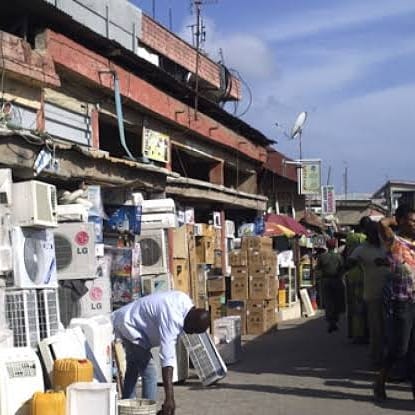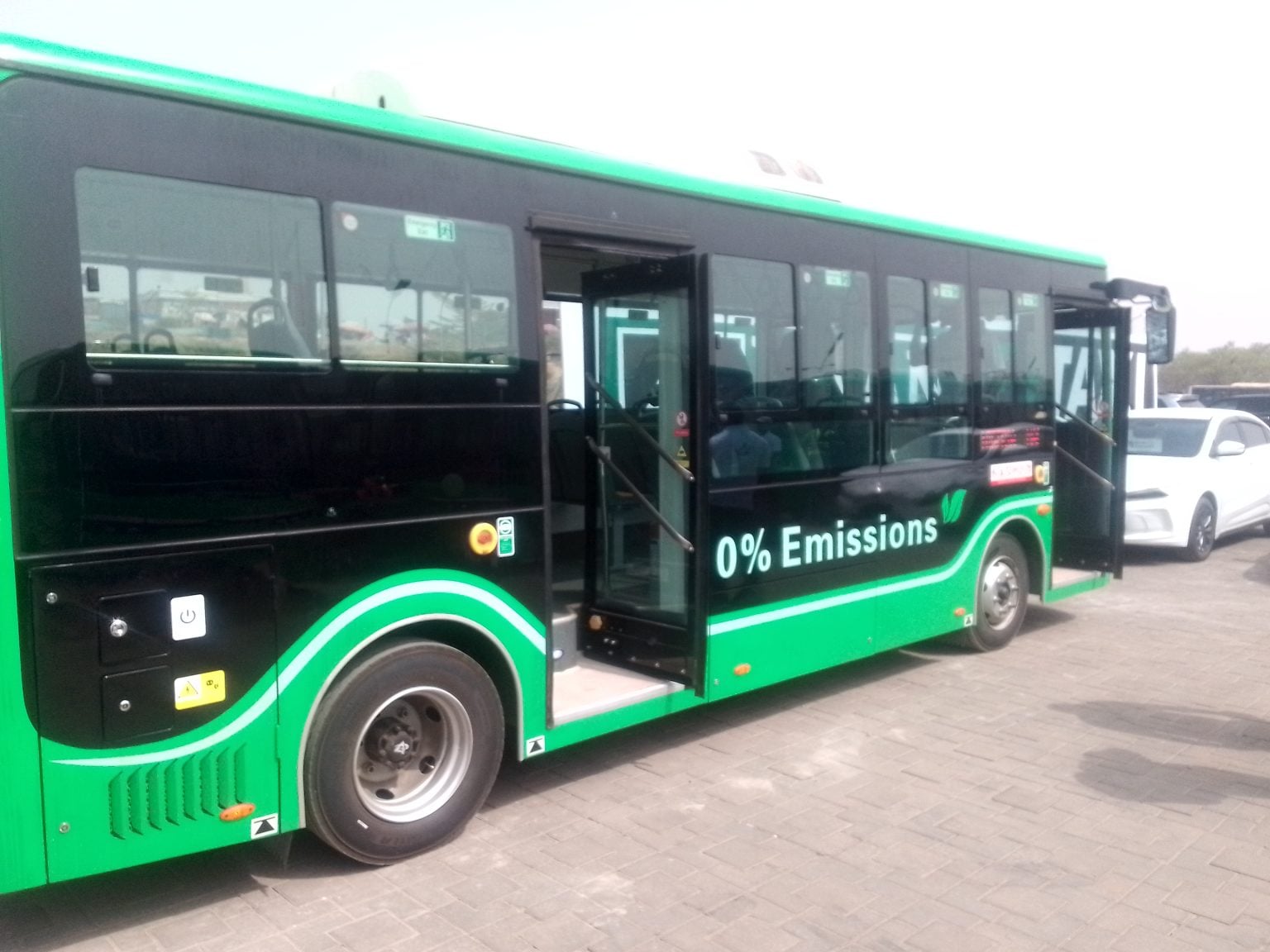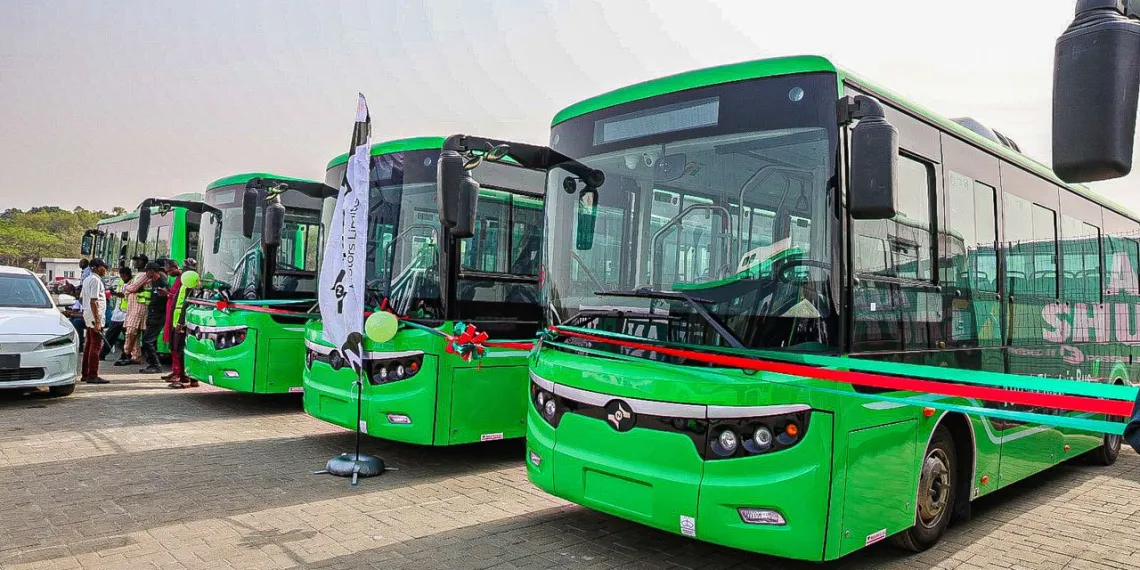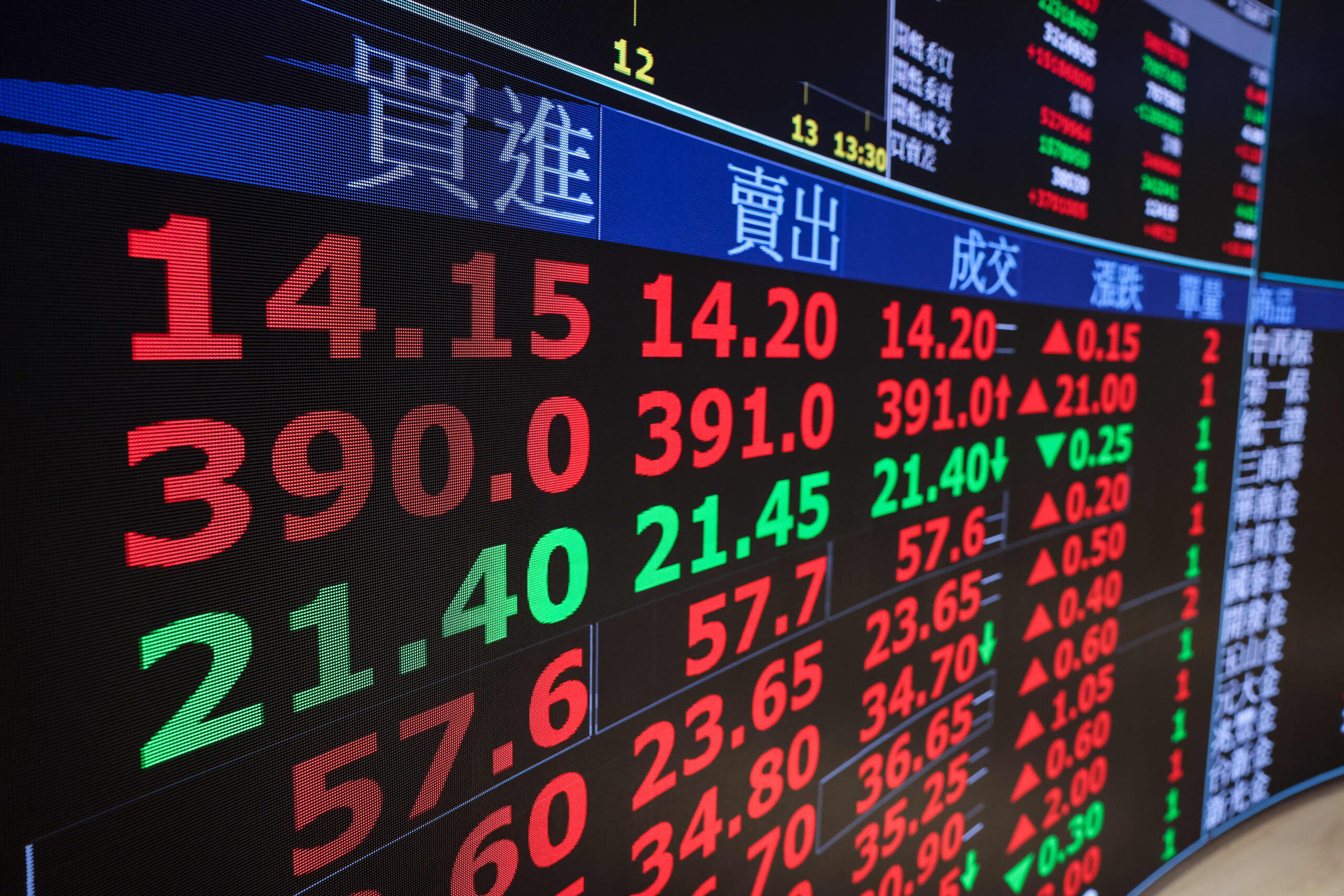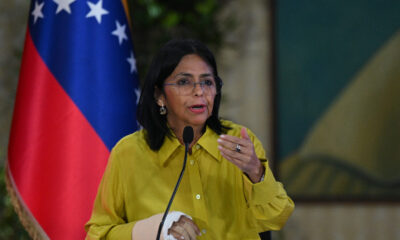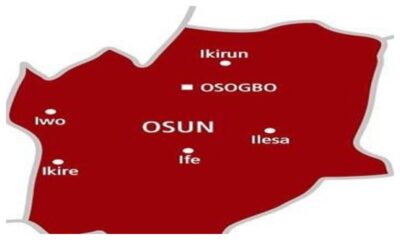Beneath the bustling chaos of Alaba International Market lies a hidden economy built on counterfeit goods. Refurbished televisions masquerade as brand-new, logos deceive the eye, and receipts vanish without a trace. For traders, it is a lifeline, a way to support families and even sustain luxury lifestyles; for unsuspecting buyers, it often means disappointment and significant financial loss. In this investigation, CHIJIOKE IREMEKA not only exposes the underdogs behind this imitation business but also draws parallels with similar trade hubs worldwide, offering potential solutions to curb this thriving culture
“I didn’t know a television could be refurbished and painted the way a vehicle could be panel-beaten and sprayed,” said 31-year-old Dumebi Asika, recalling how he was shortchanged at Alaba International Market, Lagos, while trying to buy a 65-inch smart TV for his home.
The newlywed had recently rented a two-bedroom flat in Okota, Amuwo-Odofin, in the heart of Ojo Local Government Area, Lagos State, for N1.8m. After furnishing his living room with sofas, he set out to buy a fashionable smart television as a gift for his wife.
However, with the prices of new televisions rising across brands, the 65-inch TV he wanted was beyond his budget.
A new model was going for N620,000, while a tokunbo (used) television sold for N242,000. Reluctantly, he opted for a used set, but that decision would later lead to disappointment.
“Everything went wrong when I settled for tokunbo instead of my original choice. I went for a fairly used TV, but I was given a refurbished one instead,” he said.
How it began
What the smooth-talking seller, known only as Joe, actually handed Asika was an old TV set cleverly passed off as tokunbo.
“The TV worked perfectly for a couple of weeks, but after a month, it started overheating and randomly shutting down. Within a week, lines appeared across the screen. I was shocked,” he recalled.
Attempts to reach Joe through the contact on the receipt proved futile. Frustrated, Asika took the television to a local electrician, who delivered the unwelcome news: the set was not a genuine Samsung.
While the casing bore Samsung branding, the internal components: panel, motherboard, and power unit, were cheap, mismatched parts from unknown manufacturers.
Essentially, it was an assembled TV masquerading as a branded product.
“It was a screen problem, but repairing it would cost almost as much as the TV itself, with no guarantee it would last. I was advised to return it to the seller,” Asika explained.
Finding the seller, Joe, was complicated by ongoing demolition and rebuilding projects in the market, which had displaced many traders. When they finally met, Joe argued the television had been in perfect condition when it was sold, claiming Asika damaged it and should bear the responsibility.
“It was a heated argument. People gathered to intervene, but Joe insisted he had done nothing wrong, saying he sold the product two months earlier and couldn’t accommodate returns beyond that period.
“Eventually, I had to drop the faulty set, pay an additional N49,500, and accept a 55-inch LG TV instead of the 65-inch I wanted. I wish I had gone for my initial choice, a brand-new TV. But it was an experience that changed my perception of tokunbo items,” Asika lamented.
‘I paid for a 55-inch TV but 45-inch was given’
In a similar case, 48-year-old civil servant, Sunday Chinwike, fell victim to brand counterfeiters at Alaba Market. After saving for months to upgrade his living room TV, he was led to believe he could get a high-quality 55-inch LG smart television at a lower price.
Guided by local hustlers known as Osoafia boys, who posed as market insiders, Chinwike was led into a shop lined with neatly stacked LG-branded television cartons.
The shop assistants, later discovered to be impostors, showcased the television’s features, displayed an LG-branded remote control, and produced a seemingly convincing warranty card.
“The price was N320,000, lower than elsewhere, but not suspiciously cheap. I trusted them. I didn’t understand the meaning of being careful until I was shortchanged,” Chinwike recalled.

He said he was drawn in by claims of a promotional price and LG’s excess stock.
“After a brief test in the shop, the television came on, showed bright colours and looked genuine. Unfortunately, I did not pay attention to the software or the size,” the man said.
It was only after returning home that his son, Marcel, began navigating the settings and noticed anomalies.
“Some of the apps and software in the menu weren’t customised. After a series of checks, we discovered it wasn’t an LG product at all; it was a clone. We also realised it wasn’t as large as my neighbour’s television. Yet, surprisingly, most features worked, including Bluetooth and Wi-Fi,” Chinwike explained.
Shocked by the discovery, father and son returned to the shop seeking a replacement, only to encounter the real shop owner, who delivered an unexpected revelation.
“By the time we arrived, the seller had disappeared. The shop owner examined the television and said it was not his product. He said he did not even stock 55-inch LG televisions. The receipt I had did not come from his store. Apparently, Osoafia hustlers had sourced the set from another vendor and sold it as genuine,” Chinwike said.
The owner advised him to exercise more caution, clarifying that the product itself was not faulty, just that it was simply not authentic.
“The original model sells for about N750,000 and is roughly 10 inches larger than the one I bought. I had to return home with the fake television, wasting my transport fare. Still, it wasn’t entirely useless, and I learnt my lesson,” he added.
Chinwike’s experience, like that of many others, highlights a fractured system in which counterfeit global brands sustain livelihoods while ordinary Nigerians bear the brunt.
The menace of counterfeiting
Across Alaba International Market, counterfeit products, including telephones, cables, electronics, and televisions, are sold daily.
LG, Samsung, and Hisense are among the global brands most commonly imitated. Investigations by Sunday PUNCH revealed that traders import generic or substandard TV panels, assemble them locally, and brand them with popular logos. To the untrained eye, the products appear authentic, with carefully fabricated cartons, substandard remote controls, start-up screens, and serial numbers.
Experts warn that until regulatory agencies, brand owners, and policymakers enforce stricter measures, Alaba’s counterfeit economy will continue to thrive, ensnaring unsuspecting buyers behind familiar logos.
Regulatory agencies, including the Standards Organisation of Nigeria, have occasionally carried out raids in the market, seizing counterfeit goods and shutting down shops engaged in illegal activities.
However, enforcement has remained inconsistent. The market’s vast size, dense population, and political sensitivity mean that business often resumes almost immediately after raids. Brand owners have also faced criticism for weak local oversight and limited consumer education.
Millions lost to counterfeiting
The World Bank estimates that Nigeria loses around 15 per cent of potential GDP growth annually due to counterfeit products and related illegal trade.
Experts note that the Information and Communications Technology and electronics sectors are particularly vulnerable, with counterfeit devices contributing to poor service quality and financial losses for both consumers and original manufacturers.
Even international watchdogs have taken notice. In 2014, the Trademark Working Group, an informal collaboration of US companies facing challenges protecting their trademarks abroad, listed Alaba as one of Nigeria’s most notorious markets for counterfeit goods.
In 2018, SON revealed that Nigeria lost N15bn annually to counterfeiters.
A former SON director, John Achukwu, made this known at a stakeholders’ workshop on “Reduction of Substandard Products in Nigeria” for the South-East zone.
Today, counterfeit goods are noted to make up 40 per cent of products in the Nigerian market, causing annual economic losses exceeding $20bn.
Many of these products, particularly electronics, are imported, and according to SON, the body had previously destroyed counterfeit items worth up to N500m in single operations.
Recent accounts from buyers highlight the persistence and severity of these scams.
A banker, Wilson Ebo, for instance, said he went to Alaba to buy a second-hand Samsung home theatre, only to realise it was counterfeit.
“After testing the sets and negotiating a price of N25,000, I paid and signed the receipt without scrutiny. Later, a shop assistant told me the DVD engine worked only on a generator and suggested a swap. When I asked for a refund, the seller refused. An elderly man posing as a mediator later revealed that the receipt excluded the subwoofer and speakers. It became clear that the mediator was part of the scam. I had no choice but to pay an extra N6,000, and even then, the so-called Samsung was fake, as the logo was simply glued on it,” he said.
Fake products, cheap alternatives
Sunday PUNCH’s investigation revealed a system sustained by economic hardship and weak regulation, even as some traders defended the sale of low-quality goods as affordable alternatives for the masses.
“The goods you call fake are actually cheap alternatives for the masses. If we sold only originals, what would the poor do? How many people can afford them? Customers want affordable products because of the country’s economic situation. Everyone is just trying to survive, and you cannot blame anyone for that. Those who cannot afford the original will go for an alternative and still enjoy their lives,” argued a trader, Joshua Chidozie.
He acknowledged that alternatives are not necessarily bad but warned that some hustlers do not provide buyers with true, full details.

“If you are not careful, they will sell that same alternative to you as the original. In the market, there are always two products: original and copy. You can get the one you want, but if you don’t know and seek a cheaper product, they will sell you a copy in place of the original,” he added.
In contrast, an electronics engineer, Kenneth Ikwo, warned that the normalisation of counterfeiting has created a dangerous marketplace where deception has become routine. He noted that while consumers are often blamed for being ‘careless,’ the sophistication of counterfeit products makes it nearly impossible for the average buyer to identify a fake.
“You can’t be more careful than the criminals. Some counterfeit TVs pass basic on-the-spot tests but fail weeks or months later, long after the seller has disappeared. Beyond financial loss, the risks are serious. Substandard electronics can cause electrical faults, fires, and health hazards. Many fake TVs lack proper insulation and voltage regulation, which can burn sockets and damage entire apartments,” Ikwo warned.
He alleged that traders often source low-quality television sets from foreign manufacturers, particularly in China, without brand logos. Once in Nigeria, he noted, local printing shops produce counterfeit brand cartons to package the products as originals—a practice recently highlighted in a viral video circulating online.
Fake LG logo syndicate exposed
Recently, a suspected syndicate was exposed inside Alaba International Market for printing LG logos on cartons for 45-inch and 55-inch televisions. A viral video obtained by Sunday PUNCH showed the suspects stamping LG logos on cartons as they prepared the televisions for sale to unsuspecting customers.

A voiceover in the video said, “Yesterday, I was in Alaba… and I came across this guy printing the LG logo on these new TVs.”
According to the narrator, over 3,000 cartons of counterfeit televisions were discovered inside the shop, raising fresh concerns about the scale of fake electronics flooding Lagos.
Prospective buyers were urged to exercise caution, as branded packaging alone does not guarantee authenticity.
Why the menace persists
An electronics dealer in Festac town, Osita Udegbunam, attributed the persistence of counterfeiting to poverty and the struggle for survival.
“As a first-time visitor to the market, you’ll encounter Osofia hustlers who direct you to shops or claim they have exactly what you are looking for. These are mostly unemployed young men with no capital to start trading, but with extensive knowledge of the market.
“They guide buyers to sellers, earning small tokens from both parties to survive. Even married men rely on these crumbs to support their families. This system exists in major markets – electronics, foodstuffs, and more,” he said.
Udegbunam noted that similar practices are common in Alaba Rago, the livestock market, where local boys guide buyers, as well as in cattle markets.
“However, due to hunger and desperation, some have turned to crime as a faster way to survive. No authority can solve this without addressing the root causes. Create jobs, reduce hunger, and make life meaningful for the masses, and these problems will diminish. Even graduates are involved. The hungrier the population, the more people drift into scams and crime,” Udegbunam added.
Supporting this, a trader in Oshodi, Jonathan Isibor, explained that while some hustlers are genuinely trying to make a living, others deliberately prey on unsuspecting buyers.
“The bad ones usually exploit greed. They may offer an LG 42-inch LED TV for N100,000 or quote other unrealistic prices. If you fall for it, you return the next day claiming you were scammed at Alaba. These scammers operate in organised rings, and once you fall into one, escaping their trap is difficult. The best protection is to remain alert and wary of their tricks,” he advised.
Isibor added that these hustlers cut across ethnic lines, Yoruba, Igbo, and Hausa, but are united by a single motive: defrauding unsuspecting buyers.
“Hunger knows no tribe, and crime has no colour. A Yoruba hustler may discourage you from buying from an Igbo trader, and vice versa, but they often belong to the same ring. Their sole aim is to defraud you,” he explained.
The trader also noted that task forces oversee different sections of the market. “Once you identify where you made a transaction, report it immediately to the task force, and it will be addressed. Alaba has many genuine, hardworking traders, but in a market of this size, bad actors will always exist. Buyers must stay observant, avoid shady deals, and carefully read receipts before signing or making payment,” he added.
‘We are hustlers, not criminals’
One of the Osoafia hustlers, Peter Balogun, rejected the criminal label often attached to them, insisting that most are simply trying to survive.
“We are not criminals,” he insisted. “We hustle to feed our homes. What we do is guide customers to traders who sell the products they are looking for. When a customer buys, we get a small commission from the trader or a token from the customer.”
Balogun acknowledged that some individuals exploit the system to commit scams, but emphasised that they do not represent the majority. “Bad people are spoiling the work for us, but many of us are genuine. Unemployment and hardship have pushed many young men into Osoafia hustling. There are no jobs. This market is how we survive,” he added.
punch.ng
FOLLOW US ON:



